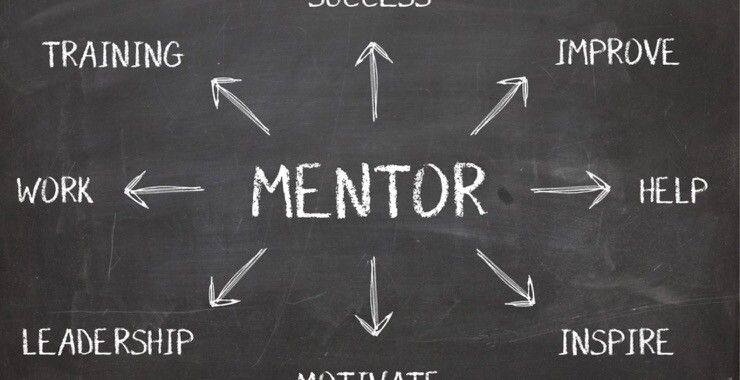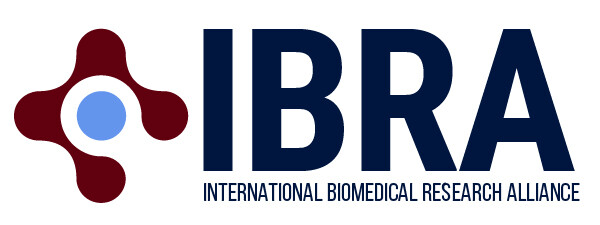
With Great Power Comes Great Responsibility: Understanding the Importance of Mentoring
by Joanna Patterson-Cross
Originally published on abcam’s tipbox.
The origins of mentoring
Mentoring. A word we often hear throughout our career, but what does it really mean? We can begin to answer this question by probing the origins of the word ‘mentor.’
I was amazed to discover that the term traces back to the 8th Century BC when Athena disguises herself as Odysseus’ good friend, Mentor, in Homer’s Odyssey. Athena, as Mentor, then continues to encourage and guide Odysseus’ son, Telemachus.
This seems to reflect the meaning we place on mentoring today; to encourage and guide the mentee in order to nurture their development. However, as mentoring has an enormous impact on the mentee’s career trajectory, it is essential to understand what makes a great mentor.
Finding what makes a great mentor
As an alumna of the National Institutes of Health (NIH) Oxford-Cambridge (Ox-Cam) Scholars Program, I spent two years in a lab at the University of Oxford (UK) and two years in a lab at the NIH (USA). It was a unique experience because, unlike many PhD programs, I had mentors in two countries.
As this dual mentorship was both an advantage and a challenge, the structure of the NIH Ox-Cam program provides an excellent opportunity to delve into the depths of mentoring. Therefore, I interviewed both mentors and mentees to discover the secrets of their success.
A mentor and mentee: the first meeting
When a mentor and mentee first meet, their needs and objectives are unknown to the other. So how should a mentor approach this situation? I put this question to experienced mentor Dr Hans Ackerman.
He told me that he doesn’t judge a person by their qualifications but instead seeks to understand their strengths and limitations to support them when and where they need it most. For example, some of his mentees benefited from close and frequent attention, while others, such as former NIH Ox-Cam Scholar Matthew Alkaitis, performed best when given more autonomy.
By letting Matthew initiate our meetings and set the agenda, we would focus on the challenges that were most important to him. He wasn’t looking to me for answers, but rather he valued the process of identifying a problem and engaging with me to articulate the solutions he wanted to try next.
Dr Hans Ackerman
The mentee’s responsibility
On the other side of the spectrum, it is critical to look within yourself to understand what motivates you as the mentee. Although this insight allows thoughtful reflection into the best career decision, it is often challenging and does not always happen on your own. Current Ox-Cam Scholar, Mario Shammas, told me about his experience before joining the program.
Undecided about his future career, he often discussed his educational and personal views with a post-doctoral fellow about the advantages and limitations of different PhD programs. This outside input helped him to decide which career path was best, which resulted in him joining the NIH Ox-Cam program under the mentorship of Dr Derek Narendra and Prof Patrick Chinnery.
It just goes to show, you don’t have to do everything alone!
Multiple mentors: good or bad?
Dual mentoring can be challenging at the best of times, so it requires a special effort to expand it to an international level. As an alumnus of the program, Dr Narendra had personal experience of this from his degree.
I asked how this knowledge helped him to understand both the complexities and benefits involved. He explained that one of his supervisors was a well-known expert in the field, which was valuable in obtaining collaborations and scientific knowledge, but daily contact was limited. Therefore, he often relied on his second supervisor for everyday mentoring.
While balancing the advice of even two mentors can be tricky, I was amazed to discover that one of my other interviewees, Dr Ambika Bumb, former CEO and founder of Bikanta, ended up with four official mentors! However, she found having multiple mentors was actually a boost for her PhD.
Each mentor was from a different scientific field, which benefited my thesis project. They contributed resources and approaches from their respective expertise and institutes, which allowed me to develop technology and tests applications in a manner that was the definition of interdisciplinary science.
Dr Ambika Bumb
However, this experience enhanced her skills far beyond bench science. It enabled her to take control of her project and lead both a cross-disciplinary and multi-country team, learning skills of effective collaboration and project management. Quite the achievement! Nevertheless, this was only possible as her mentors respected her views and fostered an environment of independence. Now a mentor herself, Dr Bumb, remembers her training and focuses on listening to her mentees to support them as their goals develop.
Like any good recipe, success comes from balancing key ingredients. Gaining familiarity with multiple mentoring strategies is a distinct advantage for the mentee as it enables them to discover which strategy they prefer – knowledge that can only be obtained through experience. However, success can only be achieved when the mentoring partnership is respected by all involved.
It is also important to remember that dual mentoring does not have to be from two principal investigators or professors. Mentoring comes in all shapes and sizes, whether it’s from a post-doc in your lab, a previous colleague, or a friend from the lab next door.
Mentoring during COVID-19
Mentoring can be challenging when you have daily interaction, but what happens when contact is limited? The COVID-19 pandemic altered many mentoring strategies, and Ox-Cam Scholar Charles Phillips-Hart recalled how the situation required quick thinking on both the mentee’s and mentor’s side.
We wanted to ensure optimal levels of productivity, so we shifted our focus to writing and preparation for virtual conferences. I use Slack to communicate findings, and my supervisor can provide critical feedback within 24 hours, if not minutes.
Charles Phillips-Hart
Although the COVID-19 pandemic has enhanced this need, communication is vital for effective mentoring in all situations. With continually improving technology, this can be via instant messaging services, like Slack, or through virtual platforms, such as Zoom. The critical factor is feeling comfortable expressing opinions and receiving feedback over any medium.

Read our article on Virtual Conferences to read about the benefits and limitations of attending conferences virtually
Mentoring awards
While feedback can be tough, it is critical at every career stage, whether you are just starting out or an experienced researcher. Rewarding exceptional mentoring is an essential task, and multiple mentoring awards have been established. In 2006, the Annual Nature Award for Mentoring in Science was bestowed upon Professor Andrew McMichael, mentor of NIH Ox-Cam alumna and Rhodes Scholar Dr Julia James.
I will never forget the time that Professor McMichael donned a lab coat to help me troubleshoot an experiment. He was a fantastic mentor and very approachable despite his many accolades.
What most impressed me about Professor McMichael’s approach was how he individualized mentoring; those who needed more support would be guided, and those who were quite independent were given room to explore.
Dr Julia James
So, how do you become a great mentor?
From Homer’s Odyssey to the present day, mentoring is an integral part of all our lives. But what is it that makes a great mentor? Throughout the interviews, one piece of advice kept appearing: that mentoring isn’t a one-size-fits-all strategy.
It takes understanding and respect on both sides of the equation to recognize what strategy works best. And this responsibility isn’t placed on a single person’s shoulders. Both the mentor and mentee need to work together to communicate their views.
As a mentor, you can have a considerable influence over your mentee’s development, whether you are a PI, colleague, or friend. And, while great power does come with great responsibility, the interviews showed that mentees who had great mentors became great mentors themselves. It really is a circle of life.
This article was written in collaboration with the International Biomedical Research Alliance.
